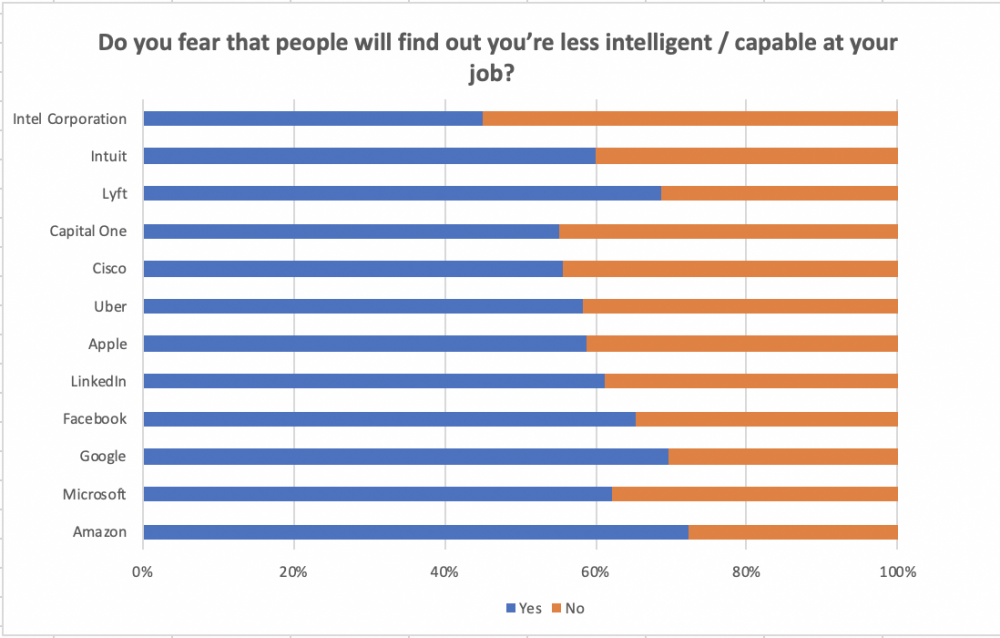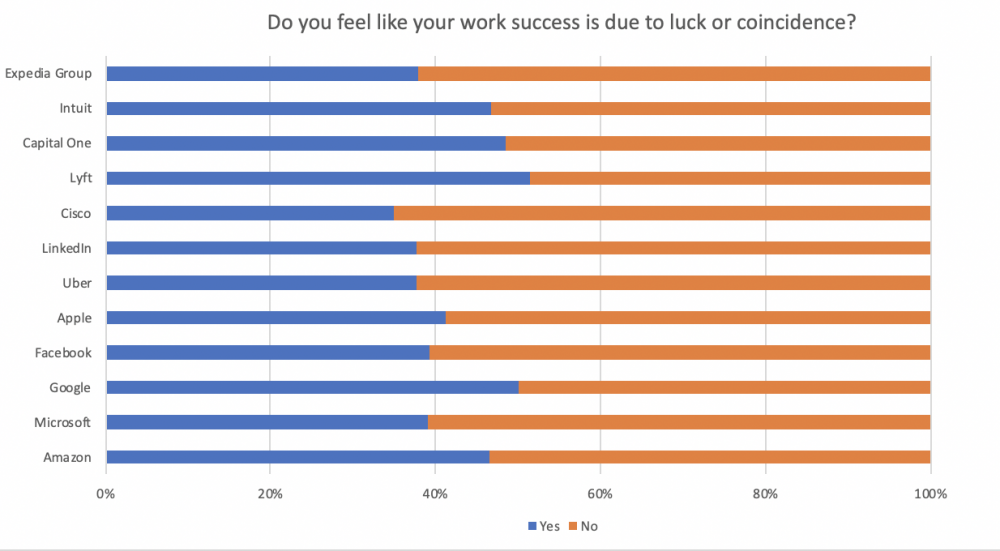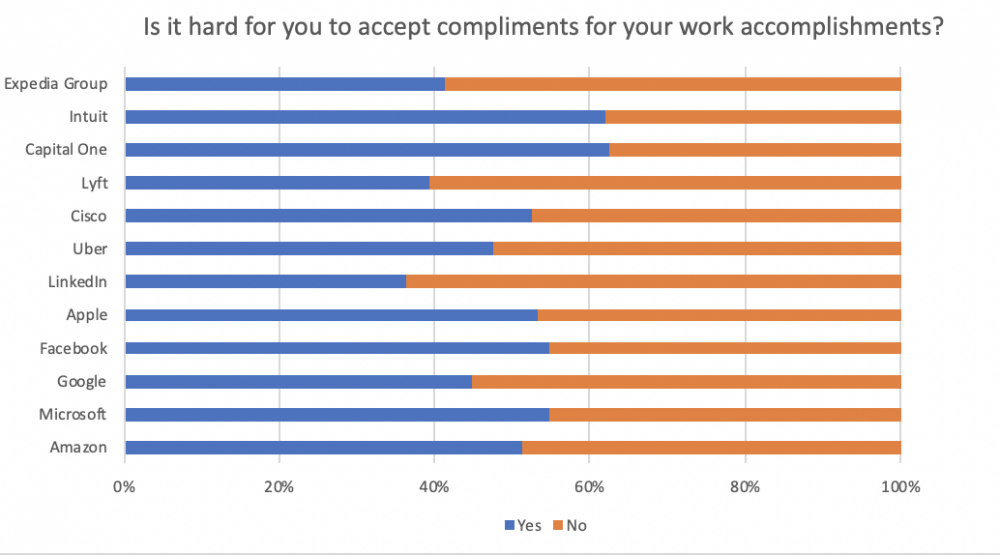Mental Health Awareness: Imposter Syndrome
Do you work for a reputable company or an innovative product? Have you recently landed a promotion or been chosen to lead a new project? Are you worried that you may not be equipped for this? If you answered yes, you may be experiencing Impostor Syndrome.
What Is Imposter Syndrome?
Impostor Syndrome is an experience of doubting your accomplishments and feeling like a fraud, and according to a recent survey, Silicon Valley is not unfamiliar with it.
Blind, an anonymous community of verified professionals with 3.6MM+ million users, ran a survey asking tech and finance professionals:
- Do you fear that people will find out you’re less intelligent / capable at your job?
- 62% of surveyed professionals answered yes
- 72% of Amazon professionals answered yes, compared to 45% of Intel professionals

- Do you feel like your work success is due to luck or coincidence?
- 41% of surveyed professionals answered yes
- 46% of Amazon, 50% of Google, and 48% Capital One professionals answered yes

Is it hard for you to accept compliments for your work accomplishments?
- 50% of surveyed professionals answered yes
- 63% of Capital One professionals answered yes, compared to 36% of Linkedin professionals

These questions were asked from 7/17/2020-7/22/2020. With nearly 2,900 responses, the results are not entirely surprising. These 2,900 professionals helped confirm the reality that COVID-19 has pushed professionals into so many new roles. Even if their official title has not changed, we are all now full-time remote workers, working parents are now *also* virtual educators, and a lot of professionals are simply questioning whether they’re doing enough in the “new normal” of their role.
What’s Causing Your Confidence to Drop?
Identifying the source of your self-doubt is an initial step in managing impostor syndrome. One Blind user at Microsoft writes, “Day # 2 at Microsoft … Imposter syndrome is kicking in. I was super excited to join but slowly my imposter syndrome has started kicking in and I feel like I will fail for sure.” We recommend watching this Ted Talk, which is an excellent reminder that the feeling of fraudulence is extremely common.
Ways to Deal With Impostor Syndrome
Once you’ve identified the source of your self-doubts, you can take the appropriate actions to cope. Here are some steps that people suffering from impostor syndrome have found helpful:
- Remind yourself of past achievements and the work you’ve put in to get to where you are. Celebrate present wins too, no matter how small. This will help you reaffirm your worth and allow you to embrace the fact that you played a vital role in your own successes.
- Adopt a growth mindset, especially when faced with new tasks and situations. Know that initial failure is common when pursuing new ventures, but keep in mind that you will improve with time and effort.
- When it comes to compensation, understand that your pay does not always correlate with your responsibilities, your worth or even your performance. Factors beyond your control, including a company’s financial health and the market, can significantly influence your compensation.
- Another helpful way to manage impostor syndrome is to take solace in knowing that you’re not alone. Many people experience moments of feeling like a fraud, successful people, Michelle Obama included.
The amount of times it takes for impostor syndrome to fade away varies. For some it may only take a few months, for others it may be years. The bad news is that once it’s gone, impostor syndrome can return. While there is no guaranteed way to keep impostor syndrome at bay, you can learn how to live with it: Identify what’s shaking your confidence and take the necessary steps to address your self-doubt. In fact, this video challenges us to use imposter syndrome to our benefit.
Finally, in case you need additional resources, we suggest reading one of these 9 books, to help gain the confidence boost you need to cope with imposter syndrome.
Not entirely sure you’re suffering from imposter syndrome?
You can take this quiz.